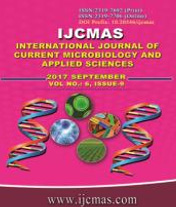


 National Academy of Agricultural Sciences (NAAS)
National Academy of Agricultural Sciences (NAAS)

|
PRINT ISSN : 2319-7692
Online ISSN : 2319-7706 Issues : 12 per year Publisher : Excellent Publishers Email : editorijcmas@gmail.com / submit@ijcmas.com Editor-in-chief: Dr.M.Prakash Index Copernicus ICV 2018: 95.39 NAAS RATING 2020: 5.38 |
The socio-economic status of Indian fishers has been evaluated. In addition, their status has been compared with an earlier period to see the changes that occurred over time. Though production has increased over time, growth does not reflect the economic development of the fishing community and about 61 per cent of them are living still below the poverty line. But due to the Government policies and subsidies, their economic conditions improved during the last one decade. There is an improvement in the fisher’s education, training, diversification of economic activities, employment, savings pattern and consumption expenditure over time. The increase in the percentage of fishers involved in subsidiary activity tells that they were not receiving the fruit of increasing fisheries GDP. The p value of the logistic regression is significant for medium size households, religion Hindu, land cultivation and age more than 30 years. MGNREG scheme must be planned properly and monitored in such a way that the fishers will be benefited to a large extent during the lean season or ban periods by getting alternative employment.
 |
 |
 |
 |
 |